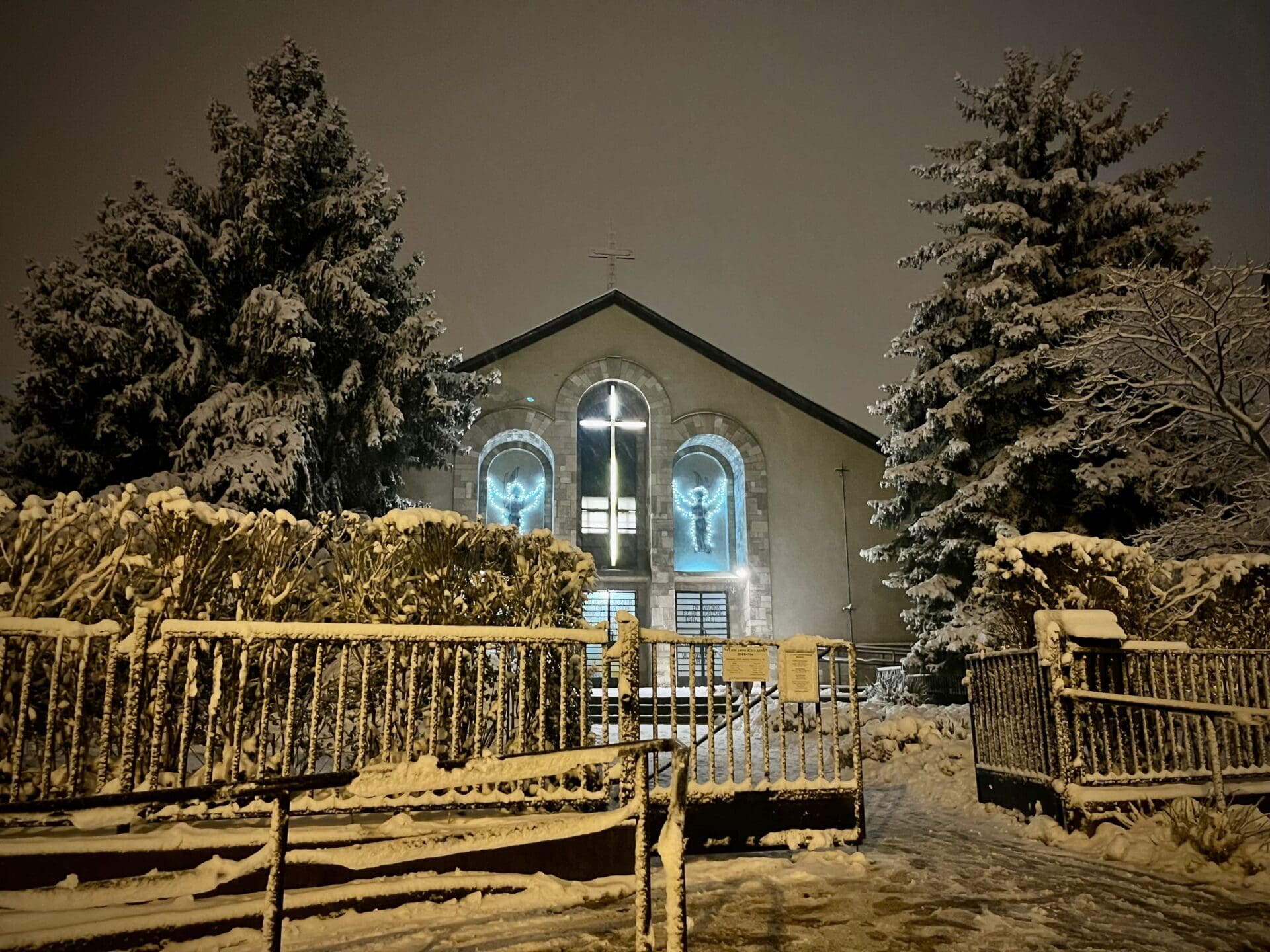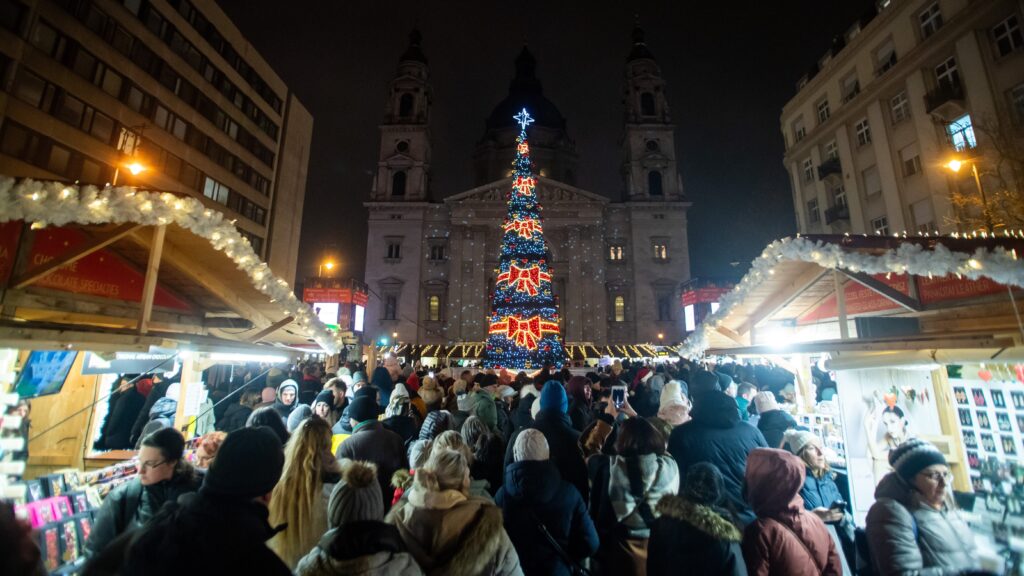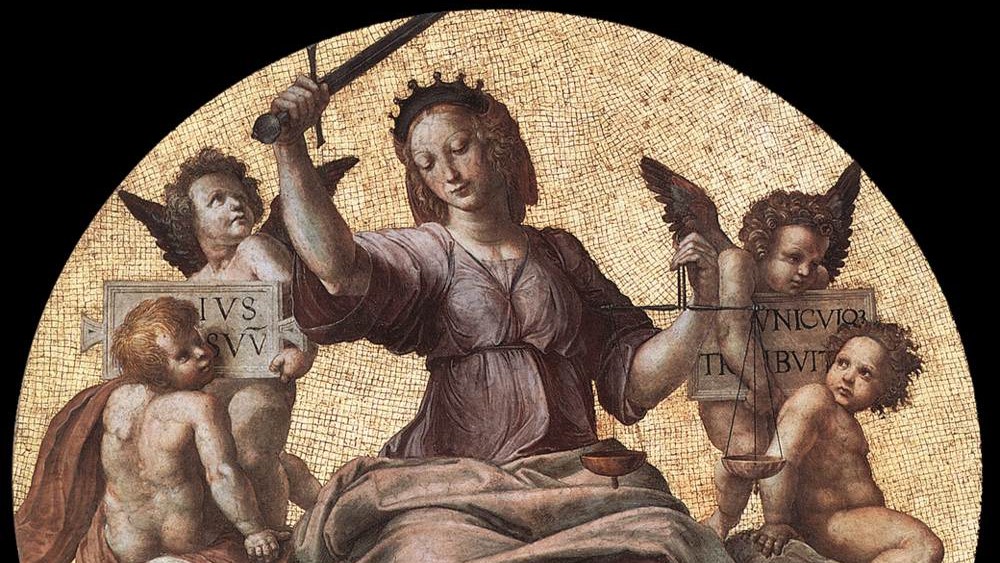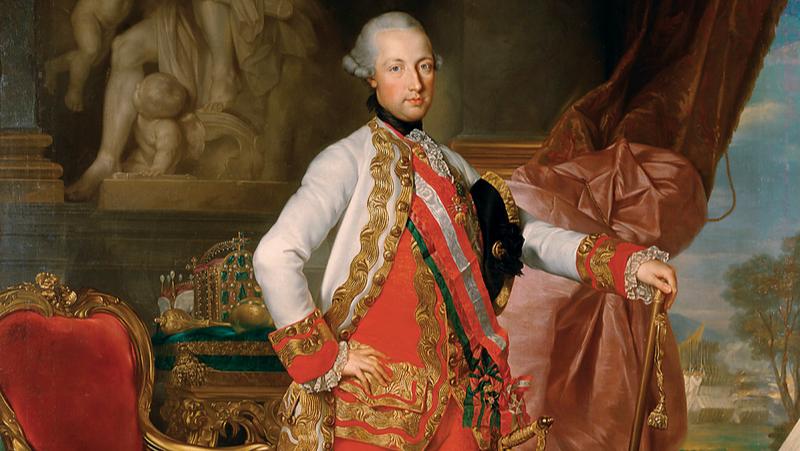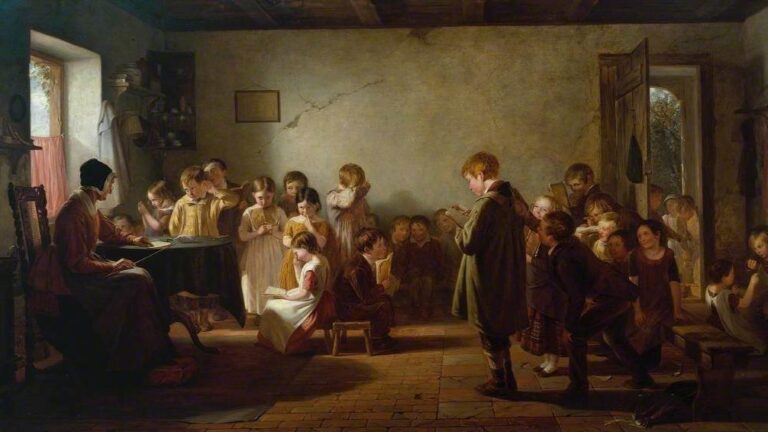Christmas is a celebration of consumption, some say.
Over the weekend, my wife, our daughter and I strolled through the centre of Budapest, after we lit the third Advent candle at our family table. To escape the overpowering cacophony of Christmas tunes in the shopping centres, we sought refuge in the city, only to find ourselves in the very same atmosphere.
One’s time at the renowned Christmas markets of Budapest follows a predictable pattern: as soon as your arrive at the entrance to the Christmas fair, the current catches you, and from then on it’s highly unlikely you’ll get away in less than an hour. There is a good chance that you will find out for the nth time that all Mariah Carey wants for Christmas is you, and that the prices of mulled wine and strudel seem to be higher each year (not to mention the alluring tourist (and digestive system) traps, such as the dish with an onion sausage ‘nest’ on top of a greasy lángos).
It was all too much and we felt we had to escape,
but, alas, we chose the wrong route: ‘Fashion Street,’ connecting Vörösmarty Square and Deák Ferenc Square, offered little respite. It was a truly dizzying experience to try and slalom through the crowd with a stroller, while ‘Have Yourself a Merry Little Christmas’ filled the air of the crowded street, but at least in Frank Sinatra’s cosy-tired light baritone. A tune meant for fireside moments on Christmas Eve.
We had to hurry home because it was that day that the pine trees arrived at the Uptown Church in Budafok, in Budapest’s 22nd district, thanks to the actual angel of the congregation by the name of Dávid. In my family, we just call him Dávidka; it could easily be because he is fast-talking, short and thin, and speaks in a voice that can’t be called deep at all, so essentially: because of his leprechaun-like appearance.
When I meet Dávidka, I always feel a little embarrassed. Dávidka is the most active member of the congregation, a real organizer: he delivers seasonal vegetables, fruits, and honey purchased from Hungarian producers—and Christmas trees at Christmas—to the members of the congregation, who can get premium quality goods at well below market prices. Dávidka notifies people, he takes the orders, and he distributes the goods among them. He just nails it all, seemingly effortlessly.
I once asked Dávid: is all this worth his while?
‘If I put a margin on it, it wouldn’t be worth it for you to buy these things here,
logical, isn’t it?’, he answered with self-evident simplicity, so bluntly that I almost felt stupid for asking. Logical, right? Coming from the Christmas market in the centre of Budapest, not at all.
We waited for the truck to arrive at 7 p.m., and I knew very well that our two-metre Nordmann fir was in it, along with mother’s one-metre spruce. But in order to get hold of the trees, a little sacrifice was needed: I knew I had to unload 105 pine trees with ten other people, and the truck, on top of that, was an hour and a half late. After 70 minutes of waiting, I called my wife to tell her what the situation was, and we almost managed to convince each other to just forget it, as it was more important to be at home. But it was at that point that Dávidka announced that the truck, full of Christmas trees, would soon be there. (I can’t begin to imagine how difficult it must have been for the truck driver to manoeuvre in the narrow streets of the suburbs.)
So the eleven of us unloaded the 105 Christmas trees, meant for 104 households. But the 105th was for the congregation, and it turned out that again, it was I and two other men who were tasked with carrying the four-metre Nordmann fir into the church and place it next to the altar. I’m not saying that we didn’t sweat, but we all reminded ourselves how beautiful the tree looked during the nativity play on the afternoon of the 24th last year—and this year will surely be no different.
As opposed to the Western tradition, in Hungary it is Jézuska (Baby Jesus) who brings the tree and the gifts at Christmas. Consequently, every family, and perhaps every family member, has their own Jézuska—at least that’s how I imagined it when I was little. And I still do, a little bit. The good thing about Jézuska is that he always adds surprise, wonder and mystery to the holiday. The eleven of us gave Christmas trees to 104 households last weekend. While I was unloading the trees, I knew that the next day I would have a bit of a muscle soreness, but I was happy to picture the tree I was carrying standing decorated on the 24th in the living room of an unknown family, couple, or even a lonely person. While carrying the trees, I felt a connection with and affection for these strangers, anticipating the joy the trees and Jézuska would bring to their homes.
Although Dávid may never read these lines, I thank him and Jézuska for this experience.
Christmas is a celebration of love and care, after all.
On behalf of our entire editorial board at Hungarian Conservative, I wish all our readers and contributors a joyous and heartfelt Christmas!

